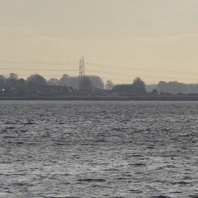
Viking Names
South Ferriby
The name of Ferriby (there is also a North Ferriby across the Humber), in the Yarborough Wapentake of Lincolnshire, comes from the Old Norse elements ferja ‘ferry’ and by ‘farm, settlement’. Both North and South Ferriby were in existence by 1086 and are mentioned in Domesday Book.
Read More
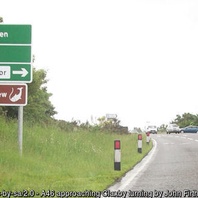
Viking Names
Claxby
Claxby, in the North Riding of Lindsey in Lincolnshire, is formed from the Old Norse male personal name Klakkr and Old Norse by ‘a farmstead, a village’. There are two other identical formations of the place-name in the South Riding of Lindsey of Lincolnshire, Claxby, and Claxby Pluckacre.
Read More

Viking Names
Spittlegate
Spittlegate, in the Winnibriggs and Threo Wapentake of Lincolnshire, comes from Middle English spitel ‘a hospital, a religious house, a house of the Knights Hospitallers’ and Old Norse gata ‘a road, a street; a right of way; a right of access to pasture-land; a right of pasturage; an allotment of pasture’. The name is first recorded in 1284 and clearly a post-Viking Age formation, though showing the continued use of originally Old Norse vocabulary in name-giving.
Read More

Item
Haverholme
Haverholme, in Kesteven, Lincolnshire, comes from Old Norse hafri ‘oats’ and Old Norse holmr ‘an island, an inland promontory, raised ground in marsh, a river-meadow’. In 1137 the site was given by Alexander, Bishop of Lincoln, to the Cistercians of Fountains Abbey who later left Haverholme for Louth Park and the manor was passed to the Gilbertines in 1139.
Read More
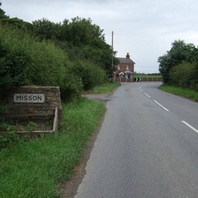
Viking Names
Misson
Misson, in the Bassetlaw Wapentake of Nottinghamshire, is a difficult name. It may be a river name, of which the first element has affinities with Danish mysse, Swedish myssene, or Old Norse mysni ‘a water-plant (?water-arum)’ either as a simplex name or combined with Old Norse á ‘a river’. Alternatively, the name might derive from Old English mos ‘a bog, a swamp; presumably also moss’.
Read More
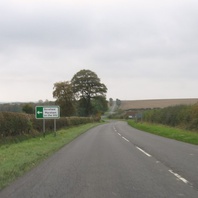
Viking Names
Scrafield
Scrafield, in the Hill Wapentake of Lincolnshire, is probably an Anglo-Scandinavian hybrid from Old Norse skreið ‘a land-slide’ and Old English feld. The latter element has a wide range of meanings in place-names, including ‘open country, unencumbered ground (eg. land without trees as opposed to forest, level ground as opposed to hills, land without buildings)’ and from the late tenth century it also refers to arable land.
Read More
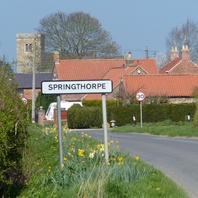
Viking Names
Springthorpe
Springthorpe, in the Corringham Wapentake of Lincolnshire, is an Anglo-Scandinavian compound from Old English spring ‘a spring, a well, the source of a stream’ and Old Norse þorp ‘a secondary settlement, a dependent outlying farmstead or hamlet’.
Read More
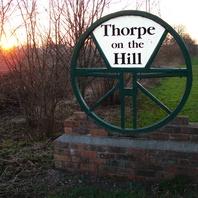
Viking Names
Thorpe on the Hill
Thorpe on the Hill, in the Graffoe Wapentake of Lincolnshire, is a simplex place-name coming from Old Norse þorp ‘a secondary settlement, a dependent outlying farmstead or hamlet’. The affix is self-explanatory.
Read More
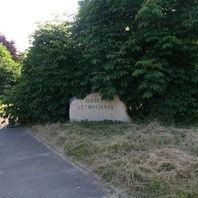
Viking Names
Driby
Driby, in the East Lindsey district of Lincolnshire, is an Anglo-Scandinavian hybrid name from Old English dryge ‘dry, dried up’ and Old Norse bý ‘a farmstead, village’.
Read More
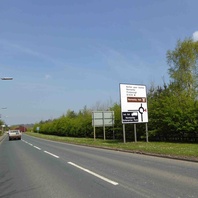
Viking Names
Flixborough
Flixborough, in the West Riding of Lindsey in Lincolnshire, is a hybrid name from the Old Norse male name Flík and Old English burh ‘a fortified place’. It is highly likely, in a place-name with Old English burh as the second element, that the Old Norse Flík has replaced an earlier Old English name or element. An important Anglo-Saxon settlement site has been excavated here.
Read More
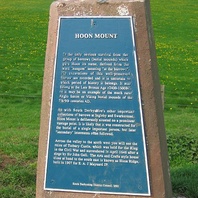
Viking Names
Hoon
Hoon, in the Appletree Hundred of Derbyshire, is a simplex place-name from haugum, the dative plural form of Old Norse haugr ‘a natural height, a hill, a heap, an artificial mound, a burial mound’, which gives the sense ‘at the barrows’. One of these barrows is now called Hoon Mount.
